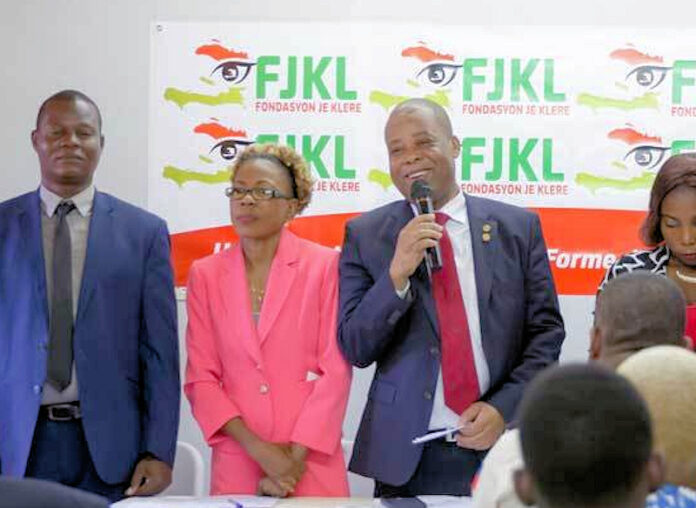
Marie Yolène Gilles was invited to address the United Nations Security Council on Feb. 20, 2023. She was representing the Fondation Je Klere (FJKL or Open Eyes Foundation), a human rights group of which she is the executive director.
Gilles told the Security Council that the FJKL “aims to promote and protect human rights in Haiti through its program for the monitoring of public institutions such as Parliament, the judicial and penal systems, the executive, and the police. It conducts inquiries and denounce[s] grave human rights violations, and it provides legal assistance to the voiceless and the underprivileged.”
Gilles provided an overview of the various crises facing Haiti, including gang violence, corruption, sexual assault, and a “grassroots uprising” against the Haitian National Police’s (PNH) leadership, whom she accuses of being led by a “mafia sector.”
She views the UN as a partner, stating in her speech that the Security Council “must contribute to the success of the transition period in order to ensure a return to democratic order,” implying that the UN should have a role in installing a transitional government in Haiti.
FJKL’s partnership with the U.S. government
Gilles’ rise to become the head of Haiti’s second most prominent human rights group is intertwined with the growing partnership between FJKL and Washington.
FJKL partnered with the U.S. Embassy in Haiti to hold a series of conferences on “fighting corruption” in Haiti on Feb. 9-10, 2023 at the El Rancho Hotel in Pétionville.
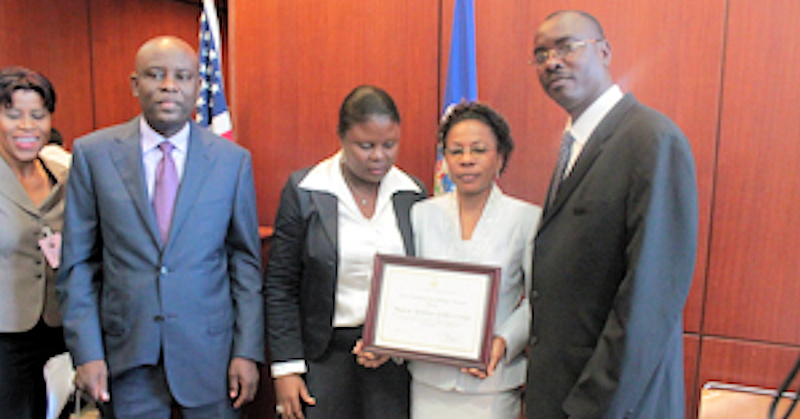
FJKL president Samuel Madistin hosted the event, which U.S. Chargé d’Affaires in Haiti Eric Stromayer attended. Speaking on behalf of the U.S. government, he said “we are proud to partner with Haitian civil society, press, and leaders to support anti-corruption work and activism, and we applaud the courageous work that anti-corruption advocates do every day.”
Gilles has been recognized before by the U.S. Embassy as an advocate, when she worked for Pierre Espérance at the National Networks for the Defense of Human Rights (RNDDH), Haiti’s foremost “human rights” group.
In 2012, Gilles received a “Woman of Courage of Haiti 2012” award (Femme de Courage d’Haiti 2012) from Daniel Foote, who was then working as the U.S. Embassy’s Chargé d’Affaires in Haiti. Foote said Gilles was an “example for all Haitians,” demonstrating an “unwavering commitment to the ideals of the Haitian revolution and of the Republic.” At the time, Gilles was the RNDDH’s head of programs.
Gilles parts ways with Pierre Espérance and the RNDDH
Gilles left the RNDDH in 2017, following her accusations that Pierre Espérance, the organization’s director, had taken 1.5 million gourdes from the government’s Bureau de Monétisation des Programmes d’Aide au Développement (BMPAD), which was responsible for managing Haiti’s Petrocaribe account and social security administration (l’Office National d’Assurance Vieillesse or ONA).
In her resignation letter, Gilles cited several reasons for leaving the RNDDH. She argued that her credibility would be “tarnished” if she remained an RNDDH program director because Espérance had violated the organization’s rule against taking money from the State.
In addition, she was critical of Espérance’s willingness to take funds from Digicel, a company of which RNDDH had been critical in the past. She also accused Espérance of failing to pay taxes or contribute to an employee retirement fund over several years.
When Espérance was confronted with the accusation that he took 1.5 million gourdes from BMPAD, he initially denied receiving the funds. Gilles claims Espérance also lied to other RNDDH members when he was asked about taking the funds. Then a photo of the cheque began circulating on social media, forcing Espérance to admit he took the money.
At the time of Gilles’ departure, RNDDH’s program director Vilès Alizar told the press that the incident was an opportunity to “reaffirm our vision” as an organization and promised a “detailed report” on how the various funds had been used.
Sixteen months later, Alizar left the RNDDH with no report having been published. He denounced in the press the “bad practices” of “leaders of the organization,” saying that despite attempts to reform the RNDDH, he “realize[d] that these provisions have proved insufficient because of resistance“ from leadership, who have “refused to undertake reforms.”
Gilles worked for the RNDDH during the 2004 coup d’état against Aristide and Lavalas
Gilles’ actions could lead one to assume she was taking the moral and ethical high road by refusing to be a part of a human rights organization that violated its own rules. Espérance had not only lied about receiving the money from BMPAD but was also taking funds from the Petrocaribe program, under which 40% of the revenues from the sale of Venezuelan oil went into a state fund to pay for social programs. Petrocaribe was not meant to supplement U.S.-backed human rights groups. The program’s intent was to provide the Haitian state with funds for development and social welfare projects.
A careful review of Gilles’ role in the RNDDH, however, reveals a sharply different picture.
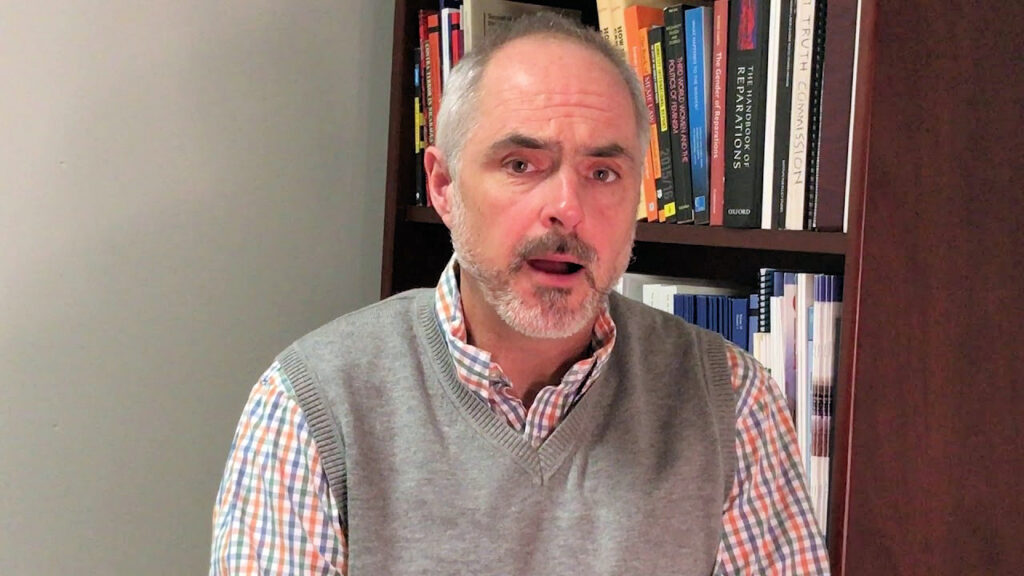
Gilles began working at RNDDH in 2003, when it was the National Coalition for Haitian Rights–Haiti (NCHR-Haiti), later renamed RNDDH.
The RNDDH played a key role in the coup d’etat that forced President Jean-Bertrand Aristide from power in 2004. Aristide had won the 2000 election with almost 92% of the popular vote.
In that coup, paramilitaries forced from power Aristide and over 1000 elected officials from his Fanmi Lavalas (Lavalas Family) party across Haiti.
A 2006 Lancet study revealed that “during the 22-month period of the U.S.-backed Interim Government, 8,000 people were murdered in the greater Port-au Prince area alone. 35,000 women and girls were raped or sexually assaulted, more than half of the victims were children.”
Mario Joseph, director of the Bureau des Avocats Internationaux (BAI) argues that “if the Lancet cited 8,000 murders in Port-au-Prince between 2004 and 2006, we have to double this number to reflect what happened throughout the country.”
Backed by the National Endowment for Democracy (NED), an agency cutout of the CIA, and the Canadian International Development Agency (CIDA), NCHR-Haiti engaged in a “close working partnership with [de facto Prime Minister Gérard] Latortue’s dictatorship,” said Richard Sanders, a Global Fellow at the Wilson Center’s Canada Institute. NCHR-Haiti “became, in effect, an arm of the illegal ‘interim’ government,” he concluded.
the Latortue regime “had an agreement with NCHR-Haiti to prosecute anyone the organization denounced.”
Brian Concannon, director of the Institute for Justice and Democracy in Haiti (IJDH), described NCHR-Haiti as a “ferocious critic” of Aristide’s government and an “ally” of the illegal regime, formally called the Interim Government of Haiti (IGH).
According to Concannon, the Latortue regime “had an agreement with NCHR-Haiti to prosecute anyone the organization denounced.”
“People perceived to support Haiti’s constitutional government or Fanmi Lavalas, the political party of President Jean-Bertrand Aristide, [were] systematically persecuted from late February [2004] through the present. In many cases, the de facto government of Prime Minister Gérard Latortue is directly responsible for the persecution,” Concannon explained during the coup.
NCHR-Haiti “became increasingly politicized and, in the wake of the 2004 coup d’état, it cooperated with the IGH in persecuting Lavalas activists,” Concannon later wrote in The Jurist. “The persecution became so flagrant that NCHR-Haiti’s former parent organization, New York-based NCHR, publicly repudiated the Haitian group and asked it to change its name.”
Several delegations visited Haiti after the coup to investigate alleged human rights violations there. Their reports reveal a so-called “human rights organization,” funded by imperialist governments, that worked closely with the Latortue regime with impunity.
The Quixote Center sent a delegation to Haiti led by retired Caribbean Studies professor Tom Reeves. Upon returning from Haiti, Reeves wrote an article explaining the delegation’s findings in which he described NCHR-Haiti as “completely partisan: anti-Lavalas, anti-Aristide. This is simply not proper for a group calling itself a ‘Haitian Rights’ organization.”
In April 2004, the National Lawyers Guild sent their second delegation to Haiti. One of the report’s eight “Unanimous Statements and Recommendations,” was an unequivocal condemnation of the group: “We condemn the National Coalition for Haitian Rights (NCHR) in Haiti for not maintaining its impartiality as a human rights organization.”
The Haiti Accompaniment Project (HAP) visited Haiti in June 2004. The HAP delegates were also part of the Haiti Action Committee, based in California.
The HAP report notes that in 2004, the NCHR-Haiti “helped develop support for the coup with exaggerated reports of human rights violations by supporters of the elected government. At the same time, they downplayed or denied the much more massive violations of the de facto regime and its paramilitary allies.”
The report also explains how NCHR-Haiti denounced supporters of Aristide’s government. According to HAP, NCHR offered no evidence for the accusations it leveled against FL supporters, resulting in “illegal arrest, incarceration and sometimes the disappearance of the accused.”
The HAP delegation met with a grassroots victims rights group who shared that they were “dismayed that the outside world still looked upon NCHR as a credible independent voice.” They told the delegates that “NCHR was now working hand-in-hand with the post-coup Minister of Justice in carrying out illegal arrests and detentions.”
The HAP delegation concluded bluntly that “they are not [an] independent human rights group.”
Marie Yolène Gilles, interrogator of political prisoners for the Latortue regime
Gilles is named specifically by several human rights delegations and reports for her role as an interrogator who worked with the PNH. Multiple witnesses accuse Gilles of bribing victims for false testimony to frame FL leaders, specifically leaders like Yvon Neptune and Amanus Mayette. NCHR-Haiti /RNDDH targeted them on behalf of the Latortue coup regime.
In an open letter sent on Oct. 19, 2006 to Justice Minister René Magloire, Mario Joseph and several other human rights lawyers demanded the release of FL political prisoners, including former parliamentarian Amanus Mayette. In the letter, Joseph identified Gilles as the NCHR-Haiti executive who interrogated Mayette at the Central Directorate of the Judicial police (DCPJ).
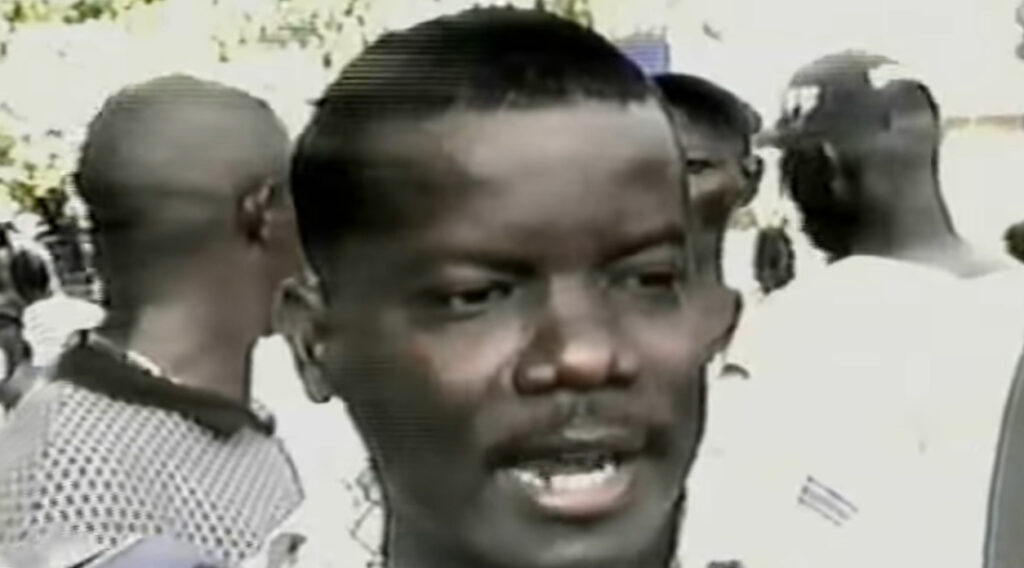
The letter also highlights NCHR-Haiti/RNDDH’s role in the Latortue regime’s “tenacious program of vengeance” which caused “caused considerable harm to the political prisoners,” noting that “it was on the basis of a mere press release” that Mayette was arrested.
Joseph refers to NCHR-Haiti/RNDDH as an “injustice machine” that was invented via Canadian government funding. He argued that the RNDDH accusations “are political,” resulting in “more than a hundred Fanmi Lavalas grassroots activists” being “arrested and detained with no charge, and no trial.”
In a separate interview, Joseph charges that RNDDH fabricated allegations against three elected Fanmi Lavalas leaders as part of a “disinformation campaign.” Joseph represented these leaders as a defense lawyer against allegations of a massacre in La Scierie (Saint Marc).
The HAP delegation interviewed several political prisoners whom Gilles visited in jail on the pretext of “defending their human rights.”
The HAP delegates interviewed Roland Dauphin, a customs worker, whom Gilles sought out at the Delmas 33 police station, offering a deal for information.
According to his testimony in the HAP report, Gilles “urged him to implicate the Prime Minister [Yvon Neptune] and Minister of the Interior [Jocelerme Privert] in an alleged massacre of Aristide opponents in St. Marc, promising him money and safe haven in the U.S.. When he balked, Dauphin reported that Gilles made a phone call to show she had the authority to deliver the deal. According to Dauphin, Gilles spoke English during the telephone call and identified the other party as a U.S. Embassy official. Dauphin had nothing to say, and Gilles left her business card in case he ‘changed his mind.’”
Deputy Amanus Mayette was also interviewed by HAP delegates. He told them that “Gilles offered him a similar bribe. According to Mayette, she pledged to secure his release, provided he would ‘name names.’”
Gilles is also accused of collaborating with PNH leadership who were complicit in the coup.
Gilles spoke English during the telephone call and identified the other party as a U.S. Embassy official.
Rospide Pétion, who headed Airport Security prior to the coup, said in his testimony to the HAP delegation that he was arrested and interrogated by de facto PNH chief Léon Charles. Pétion claims Charles threatened him with prison and that he was taken to another room where he was told to speak with an NCHR-Haiti representative. Gilles appeared, reiterating the charges. Pétion said Gilles then took over the interrogation, saying “we know you crashed the radio tower” (referring to a radio broadcast tower which had been sabotaged).
Gilles’ role as an interrogator who attempted to elicit false testimony to incriminate Lavalas leaders for crimes they did not commit offers a different perspective on her 2012 award from the U.S. Embassy for her supposed “unwavering commitment towards the ideals of the Haitian revolution and of the Republic.”
According to a COHA report, “countless individuals, many whose only crime was a loose affiliation with Aristide’s Fanmi Lavalas party, were arrested by the interim government based on false accusations entered by the NCHR-Haiti.”
Gilles was part of the process of persecuting Lavalas, framing its leaders for manufactured “genocides,” and terrorizing Haiti’s poor majority who wanted their democracy back. She did not leave when NCHR-Haiti enthusiastically applied for and received funding from the governments who orchestrated the 2004 coup. As Brian Concannon points out, NCHR-Haiti was “supported by USAID and by other wealthy governments [Canada and France], has been systematically biased in their human rights reporting, in terms of over reporting accusations against Lavalas members and under-reporting or ignoring accusations of persecution of Lavalas members.”
Nor did Gilles quit when the RNDDH began receiving annual funding from the National Endowment for Democracy (NED), which, according to NED co-founder Allan Weinstein, does “a lot of what … was done covertly 25 years ago by the CIA.” Although she worked as a reporter for the anti-imperialist newsletter Haiti-Info during the 1991-1994 coup d’état, in the 2004-2006 coup Gilles elicited false testimony to frame Fanmi Lavalas leaders for crimes the RNDDH had manufactured and played a role in the destruction of Haiti’s democracy, while the country’s sovereignty was violated by imperialist governments.
Samuel Madistin, President of FJKL
Gilles runs FJKL along with its President, Samuel Madistin, a practicing lawyer.
After representing the Artibonite Department as a Senator in the 1990s, Madistin returned to politics in 2015 when he sought to be the presidential candidate of the Popular Patriotic Dessalinien Movement (MOPOD), a political coalition-turned-party.
Madistin’s rival for MOPOD’s nomination was former First Lady Mirlande Manigat, who is currently the president of Ariel Henry’s High Transitional Council (HCT).
Former Senator Turneb Delpé, a MOPOD member, described the party as a mix of self-identified “Christian democrats,” socialists, “liberalists,” and nationalists.
Madistin lost to Manigat. Party members had reason to believe Manigat was a strong candidate. She won the first round of voting in the 2010 election, only to have the U.S. State department intervene in the election so their chosen candidate, Michel Martelly, won the second round in what is widely regarded as a rigged election.
A month later, Manigat withdrew her candidacy. In a letter to party members, she said “the elections as they are programmed, announced, and set with an impossible timetable, portend a fake vote which does not respect democratic principles.”
The nomination was then handed back to Madistin, who enthusiastically took on the role, officially launching his campaign a few months later. Madistin’s platform included many promises of investment in infrastructure, agriculture, public health, energy, reforestation, education, and governance. No details were provided on how all these projects would be funded. In his acceptance speech, Madistin framed his ideals as that of a social-democrat. He told party members that Haiti needed a “united, sovereign, democratic and popular state …that gives itself the means to fight effectively against corruption and social inequalities.” A generous plan with no details on how it might be implemented.
Ignoring Manigat’s assessment of the likelihood of foreign meddling in the 2015-16 election, Madistin ran for the presidency, competing with 54 other candidates. He lost. Only 18% of the voters voted in the election – approximately 1.5 million Haitians. Madistin acquired approximately 13,000 votes – less than 1% of the total.
The 2015-16 voting brought to power Jovenel Moïse and was widely regarded as a sham election. Like so many other politicians and political parties, Madistin tacitly endorsed the election by choosing to run, solidifying PHTK rule over Haiti.
The year after Moïse was inaugurated as Haiti’s president, Madistin and Gilles founded the FJKL in May 2018 (about one year after Gilles left the RNDDH).
It is unclear where FJKL’s funding comes from. From her years at RNDDH, Gilles has shown a clear willingness to receive funding from imperialist agencies, including the NED, USAID, the Canadian government, and the French government.
Meanwhile, Madistin is the lawyer of Reginald Boulos, one of Haiti’s richest bourgeois oligarchs. This suggests another likely source of funding for the FJKL.
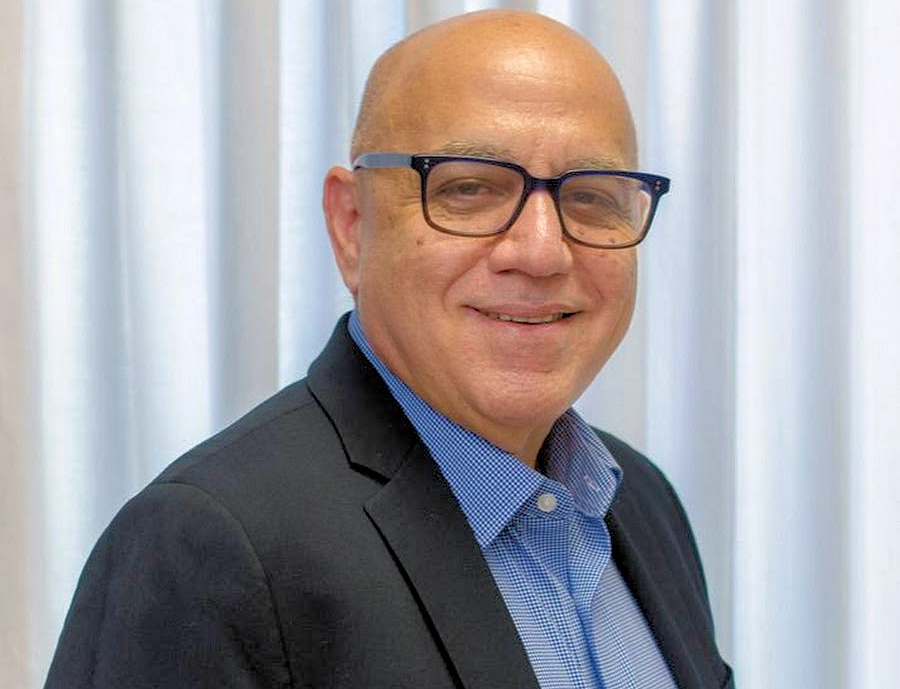
Reginald Boulos, a prominent founder and member of the NED-organized Group of 184 during the 2004 coup, is accused of financially supporting paramilitaries to force Aristide from power in the 2004 U.S.-backed coup d’etat. In an interview with Peter Hallward, paramilitary leader Guy Philip was asked if Boulos and other oligarchs had subsidized his movement. In response, Philippe said “Yes we had meetings with various businessmen and they helped us… they contributed around $200,000 (US) to buy arms and ammunition.”
According to his Linkedin page, “Boulos is past and current President of the Haitian Chamber of Commerce and Industry, and a member of the Haitian American Chamber of Commerce, the Haitian Medical Association, and the Haitian Association of Public Health.”
A multimillionaire, Boulos is also “CEO of Boulos Investment Group, which includes Autoplaza S.A., the second largest car dealership; Delimart S.A, Haiti’s largest supermarket chain; Pehacheve, a leading pharmaceutical distribution company; Multipresse S.A. radio station which he co-founded, and Le Nouveau Matin, one of the two daily newspapers in Haiti.”
A trained medical doctor, Boulos is implicated in the death of 87 Haitian children after his company, Pharval Pharmaceuticals, produced a poisonous cough syrup that was distributed in Port-au-Prince’s poor neighborhoods. An Ayibopost report from 2018 claims “at least 77 children aged one to 13 months perished in this tragedy,” while another 10 survivors suffer from permanent disabilities.
Boulos is also linked to another episode of medical malpractice against Haitian children. In 1996, the Haiti Information Project reported on a case of more than 2,000 babies in Cité Soleil who were given an irregularly high dose of an experimental measles vaccine. This “U.S. government test” was conducted by the U.S.-funded Centres pour le Développement et la Santé (CDS), which Boulos then headed.
Richard Sanders describes the Group of 184 as “the most powerful coalition of ‘civil society’ organizations in Haiti during the lead up to the 2004 coup.” It was dominated by Haiti’s business elite who were funded by American, Canadian and European government “aid” and “democracy promotion” agencies. Sanders explained that “the G184 coordinated and led the successful campaign to destabilize Haiti’s elected government and depose President Aristide.”
Tom Reeves criticized the Group of 184 of being “little more than a list of well-known pro-elite and pro-business apologists in Haiti, most of whom have virtually no public following.”
As reported by Haiti Liberté, Boulos also took it upon himself to arm the de facto regime’s police force, which violently repressed protests demanding exiled President Aristide’s return, killing scores of demonstrators and bystanders.
Madistin is Reginald and Rudolphe Boulos’ legal representative
Madistin has worked as Boulos’ attorney on several occasions. He has represented members of the Boulos family for well over a decade and Reginald Boulos’ brother, Rudolphe Boulos, as far back as 2008.
Rudolphe Boulos was found to be criminally liable for the aforementioned case of poisoning of 87 Haitian children as he was president of Pharval Pharmaceuticals at the time. Judge Jean Wilner Morin sentenced Boulos to six months in prison and ordered him to pay three million gourdes in damages to each of the victims. This judgment followed an exhaustive investigation published in the Journal Public Health Report that showed Pharval had not followed standard procedure or checked that the ingredients were certified.
Rudolphe Boulos never served a single day in prison. It is also unclear whether he paid the victims and their families the amounts owed. Rudolphe Boulos left Haiti to escape conviction following the judgment.
Madistin filed an appeal on behalf of Boulos and refused to comment to the media.
Madistin more recently represented Reginald Boulos when the oligarch was scheduled to be heard by a commission of inquiry from the General Directorate of the Haitian government’s Unit for the Fight Against Corruption (ULCC) on Jul. 2, 2021. According to a report by Haïti Liberté’s Isabelle Papillon, the ULCC was investigating two large loans Boulos received for a project to build apartments (RBI), and his Delimart supermarket chain.
Papillon explained further that “Jenley Marc Jean-Baptiste, ONA’s General Director, supported ULCC’s initiative to investigate the dispute between ONA and RBI. In a Jul. 2 note, Jean-Baptiste wrote that ONA “vehemently condemns the misappropriation of its funds in the amount of one million U.S. dollars by the company Real Business Investment SA, a company belonging to Mr. Pierre Réginald Boulos, as part of a fictitious project for the construction of social housing in Fermathe, set up in 2018.”
Boulos refused to show up for the hearing and a warrant for his arrest was issued. His bank accounts in Haiti were frozen.
Two days later, Jul. 7, 2021, President Moïse was assassinated. The charges against Boulos were quickly dropped by judge Bernard Sainvil without ONA’s lawyers in attendance, effectively stopping the investigation into Boulos’ “fictitious” social housing project in its tracks.
At the time, Boulos was president of the “Third Way Movement for Haiti” (MTVAyiti), a political party founded in December of 2019. Boulos founded MTVAyiti to challenge President Jovenel Moise after their falling out in the summer of 2018.
Responding to the ULCC and ONA, Boulos posted the following statement on Jul. 3, 2021: “It’s not the first time they have used lies and manipulation to weaponize the justice system against a political opponent,” he wrote in Kreyòl. “It’s not the first time they’ve invented fake cases to cover true cases of crime and corruption. Our eyes are open! One day will be the day! The struggle continues for another Haiti!”
When the loan was first reported on in the summer of 2018, it was quickly criticized. The loan facilitated Boulos’ purchase of a Nissan dealership in Port-au-Prince. In an article for Le Nouvelliste, financial analyst Guy Laudé said the “two institution leaders created a tailor-made product, without any legal reference” and was likely developed to supplement “the company’s lack of capital.”
So, while acting as president of so-called “human rights” group, FJKL, Madistin was also representing an oligarch, who was credibly accused of corruption.
Travis Ross is a teacher based in Montreal, Québec. He is also the co-editor of the Canada-Haiti Information Project at canada-haiti.ca . Travis has written for Haiti Liberté, Black Agenda Report, The Canada Files, TruthOut, and rabble.ca. He can be reached on Twitter.











[…] d’etat that forced President Jean-Bertrand Aristide from power in 2004.The RNDDH is generally understood to be a political organization with the facade of a human rights […]